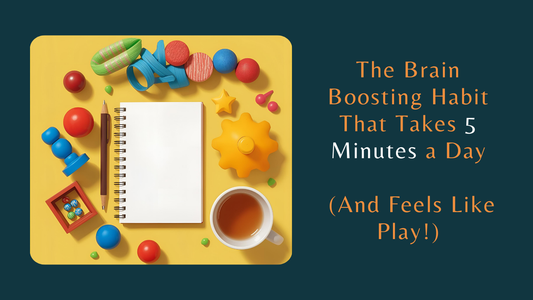Nurturing Balanced Childhoods in a Digital Age
The advent of technology has undeniably transformed our lives, offering unprecedented access to information and entertainment. However, the pervasive influence of screens on children's development has become a growing concern for parents. Striking the right balance between screen time and playtime is essential for fostering healthy, well-rounded children.
The Impact of Excessive Screen Time

While technology offers educational and entertainment benefits, excessive screen consumption can have detrimental effects on a child's physical, cognitive, and social-emotional development. Studies have linked excessive screen time to:
Physical health issues: Obesity, sleep disturbances, and impaired vision.
Cognitive delays: Reduced attention span, difficulty focusing, and hindered problem-solving skills.
Social and emotional challenges: Increased isolation, reduced empathy, and difficulty forming relationships.
Behavioural problems: Impulsivity, aggression, and mood disorders.
It's crucial to recognize that not all screen time is created equal. Educational apps, video calls with loved ones, and online learning can be beneficial when used in moderation and under parental supervision.
The Power of Play: A Foundation for Lifelong Learning
Play is an essential component of child development. It's a cornerstone for cognitive, physical, social, and emotional growth. When children engage in imaginative play, they develop:
Cognitive skills: Problem-solving, critical thinking, and creativity.
Physical abilities: Gross and fine motor skills, balance, and coordination.
Social skills: Cooperation, empathy, and communication.
Emotional intelligence: Understanding and managing emotions, building resilience.
Outdoor play offers numerous benefits, including improved physical health, increased vitamin D absorption, and reduced stress.
Creating a Healthy Balance

To ensure optimal child development, it's essential to establish healthy screen time habits and prioritize playtime. Here are some practical tips:
Set clear guidelines: Establish consistent screen time limits and stick to them.
Create screen-free zones: Designate areas of your home as technology-free zones.
Lead by example: Model healthy screen use habits for your children.
Prioritize outdoor play: Encourage physical activity and exploration of nature.
Engage in family activities: Board games, puzzles, and outdoor adventures can strengthen family bonds.
Choose quality content: When screen time is permitted, select age-appropriate and educational content.
Monitor screen time: Keep track of your child's screen usage to identify patterns and areas for improvement.
Remember, the goal is not to eliminate screens entirely but to create a balanced lifestyle that prioritizes both digital and real-world experiences. By fostering a love of play and mindful screen use, you can empower your child to thrive in today's digital world.




